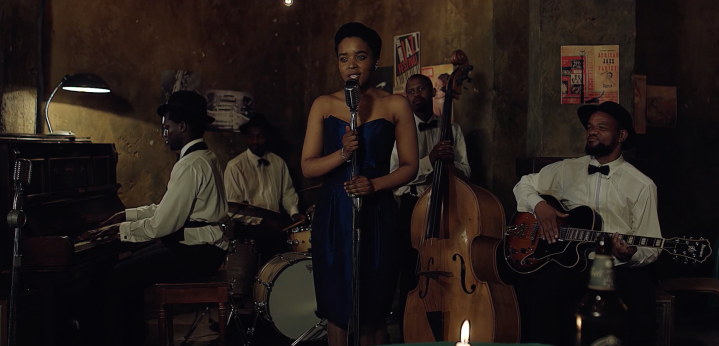What we’re watching
1960: A film about the musical and political atmosphere of Sharpeville

The 43rd Durban International Film Festival opened with ‘1960’, a charming fiction film about the life of a Miriam Makeba-inspired young singer.
Making sense of South Africa’s past is a task that will never (and should never) come to an end. There will always be disagreements about how the transition to democracy was handled and about how to approach educating born-frees who still live in the shadow of apartheid whether they know it or not; but one medium that has proved effective in imparting an understanding of past atrocities is emotive, personal story-telling.
History textbooks and documentaries are obviously essential, but dates and statistics are seldom as moving as personal accounts of suffering. 1960 is a film determined to remember the Sharpeville Massacre, using an emotive lens that humanises those who suffered in its wake and encourages empathy in its audience by personalising the tragedy.
The period drama follows Lindi, a retired singer (clearly modelled after and inspired by South African icon Miriam Makeba) who breaks the isolation of her retirement to shed light on the murder of an apartheid-era police officer, Constable Kobus Bernard, when his remains turn up in Sharpeville after 60 years.

Still from ‘1960’. Image: Supplied
The film is split between scenes of young Lindi (played by Zandile Madliwa of The Kissing Booth) in the bustling jazz scene of Sophiatown, and old Lindi (played by South African soap-opera veteran Ivy Nkutha of Muvhango, Isidingo and Generations) recounting her youth to the detective investigating the case.
The two time periods are stylistically distinct – the present-day scenes were directed by Michael Mutombo (who’s worked on Harry’s Game and District 9) and have an authenticity about them that is more reminiscent of a documentary than a drama. Nkutha gives a believable performance as old Lindi, especially in her melancholic recounting of the story.
Interestingly, both primary characters in the present-day scenes occupy positions of power – a detective in a nice suit and a retired star living in the lap of luxury at her private game lodge, yet Lindi is still haunted by the trauma of her youth, conveying a mixed message about progress and the hooks of the apartheid legacy, sunk deep into national memory.

Still from ‘1960’. Image: Supplied
The scenes of the Sixties, on the other hand, directed by King Shaft (Uzalo and Skeem Saam), are often overplayed, more like a theatre production than a period drama or a documentary. The supporting characters are most culpable in this, particularly the white madams whose cringe-worthy lines are so blunt in their dismissive nastiness that they fall flat every time.
Luckily, the leading cast of the Sixties is better, with a standout performance from Anele Matoti as Lindi’s love interest, Thomas, whose cheeky side-smiles and natural demeanour soften what might otherwise have been stilted scenes.
1960 was co-written and co-produced by Bruce Retief, who is first and foremost a musician and who composed the score for the film, with powerful numbers that pay tribute to the greats of Sophiatown. The background music, that gives a rhythm to the scenes, is not always as successful, often too “on the nose” in its mirroring of events. The first instance of this is the ominous entrance of Constable Bernard into the shebeen, gun in hand, throwing his weight around in a revolting show of intimidation – the kind that has often been recounted. In complete silence, as the victims would have experienced it, this scene might have been impactful, but accompanied by dramatic music, it becomes unnecessarily exaggerated.

Still from ‘1960’. Image: Supplied
It seems evident that the film was aimed at a wide, probably global audience – famous aspects of apartheid history are explained as if for the first time. This dilutes the potency of the story – it seems overly cautious in the depiction of violence, romance and political content – but it also makes the film suitable to watch with younger viewers, portraying personal experiences of oppression without the use of graphic content.
1960 works hard to recreate the energy and aesthetic of the era in its costume design and its set, inhabited by characters whose suffering can be located and related to rather than unchanging photographs in a textbook. While the acting often feels pushed and the treatment of the atrocities of apartheid slightly passive, 1960 seems to have been written with children and young adults in mind, and makes its message clear as the film draws to a close in a conversation between the younger detective Maseko and older Lindi.
Maseko addresses Lindi with earnest respect, saying: “Talking with you has made me realise that even though I may know the facts about my country’s history, I never really allowed it to penetrate my heart.” She replies with a melancholic warmth: “Oh, my son, there are wounds inside you that you can’t even see.” DM/ML
1960 is available via virtual screening on the Durban International Film Festival official website until 30 July.
You can contact What We’re Watching via [email protected]
















 Become an Insider
Become an Insider
Comments - Please login in order to comment.